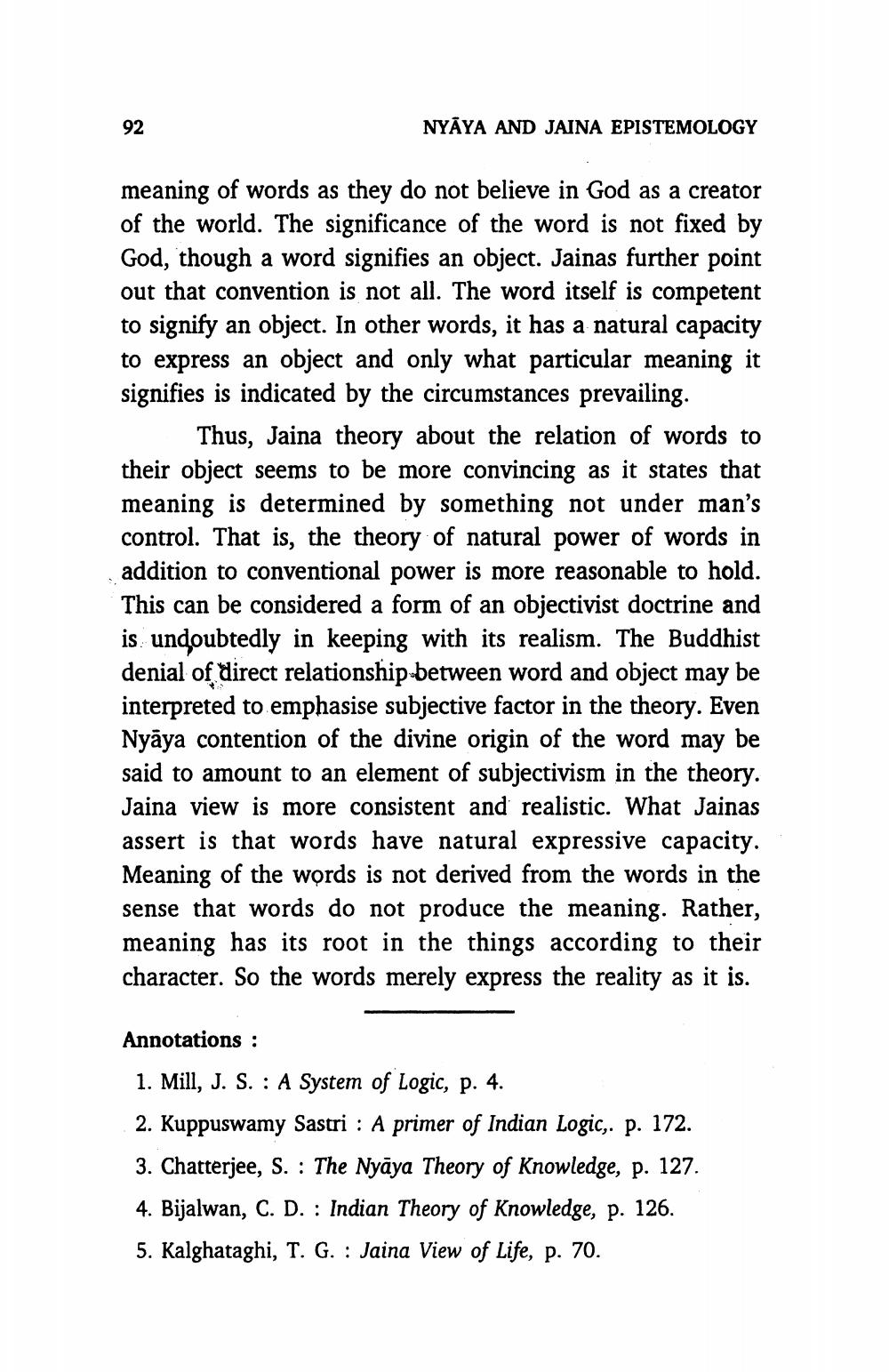________________
92
NYAYA AND JAINA EPISTEMOLOGY
meaning of words as they do not believe in God as a creator of the world. The significance of the word is not fixed by God, though a word signifies an object. Jainas further point out that convention is not all. The word itself is competent to signify an object. In other words, it has a natural capacity to express an object and only what particular meaning it signifies is indicated by the circumstances prevailing.
Thus, Jaina theory about the relation of words to their object seems to be more convincing as it states that meaning is determined by something not under man's control. That is, the theory of natural power of words in addition to conventional power is more reasonable to hold. This can be considered a form of an objectivist doctrine and is undoubtedly in keeping with its realism. The Buddhist denial of direct relationship between word and object may be interpreted to emphasise subjective factor in the theory. Even Nyāya contention of the divine origin of the word may be said to amount to an element of subjectivism in the theory. Jaina view is more consistent and realistic. What Jainas assert is that words have natural expressive capacity. Meaning of the words is not derived from the words in the sense that words do not produce the meaning. Rather, meaning has its root in the things according to their character. So the words merely express the reality as it is.
Annotations :
1. Mill, J. S. : A System of Logic, p. 4. 2. Kuppuswamy Sastri : A primer of Indian Logic,. p. 172. 3. Chatterjee, S. : The Nyāya Theory of Knowledge, p. 127. 4. Bijalwan, C. D. : Indian Theory of Knowledge, p. 126. 5. Kalghataghi, T. G. : Jaina View of Life, p. 70.




